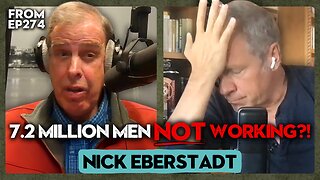Premium Only Content

What Are Co-op Shares in NYC Real Estate?
Save 2% When Buying in NYC: https://www.hauseit.com/hauseit-buyer-closing-credit-nyc/
NYC Buyer Closing Cost Calculator: https://www.hauseit.com/closing-cost-calculator-for-buyer-nyc/
What are co-op shares in NYC real estate? We'll demystify this topic in the following video. My name is Chris at Hauseit. Hauseit is the largest For Sale By Owner and Buyer Commission Rebate company in New York City, established in 2014. Now let's get started.
Co-op shares are similar to the deed for a house or condo which conveys ownership over a co-op apartment. Now, keep in mind that co-op shares are not considered to be real property unlike a house or condo. That's because co-op shareholders or "apartment owners" actually own shares in a corporation whose primary asset is typically the entire building. Thus, each apartment owner is technically a shareholder of the corporation that owns the entire building yet they also receive a proprietary lease that enables them to live essentially indefinitely in a specific apartment which is theirs.
So, in lieu of receiving a traditional deed, co-op apartment owners will receive a stock certificate which will have the name of the co-op corporation, the shareholder's name, the number of shares that the shareholder owns and other miscellaneous information. This co-op stock certificate will look pretty much like your old school traditional stock certificate for a publicly traded corporation. One thing to remember is that you certainly need to hold on to the stock certificate and keep it somewhere safe. Because down the road years from now, if you do decide to sell your co-op apartment you will need to surrender and produce the original stock certificate at closing. If you happen to have lost your stock certificate in the intervening years, well it will cause a delay at closing because you have to pay for and order a new set of stock certificates.
Can you borrow against your stock certificate? Yes, you can borrow against your stock certificate just like you can borrow against the deed of a house or a condo. When you borrow against your stock the bank would take your stock certificate as well as the proprietary lease as collateral. Also, for co-ops an Aztec Recognition Agreement needs to be signed between the bank, the co-op corporation, and yourself. Essentially, its a three-way document that recognizes the rights of each party.
So, how are co-op shares allocated between residents and a building? Well, the Martin Act of 1921 specifies that co-op shares must be allocated fairly between shareholders based on a reasonable metric such as what floor it's on or the square footage. This is a huge relief for co-op shareholders because prior to the Martin Act, developers would sometimes play games and it'd give completely unequal share allocations between apartments. For example, sometimes the developer would retain the penthouse for him or herself. Often times standing on the entire floor and have the number shares owned by the Penthouse be a less than a studio on the first floor. Of course that has implications because often times payments such as maintenance payments per month or special assessments will be based pro RATA on the number of shares owned and thus someone with fewer shares will pay less. And that it's obviously unfair if you have a larger and much bigger apartment.
If you want to learn more about how you can save money when buying or selling property in New York City and save money on broker commissions in closing costs, check us out https://www.hauseit.com
Save 2% When Buying in NYC: https://www.hauseit.com/hauseit-buyer-closing-credit-nyc/
NYC Buyer Closing Cost Calculator: https://www.hauseit.com/closing-cost-calculator-for-buyer-nyc/
.
.
Hauseit LLC, Licensed Real Estate Broker
Tel: (888) 494-8258 | https://www.hauseit.com
_
#hauseit #hauseitnyc
-
 17:30
17:30
Bearing
10 hours agoTHIS is why Men Shouldn’t Compete in Women's Sports 🤣
29.2K64 -
 13:19
13:19
VSOGunChannel
1 day ago $2.48 earnedI've Never Cleaned This Gun
27.9K4 -
 16:19
16:19
DeVory Darkins
1 day ago $12.03 earnedWoke activist dealt HUGE BLOW after judge approves deportation
36.9K116 -
 9:55
9:55
Russell Brand
1 day agoThis Is Absolutely Shocking...
86.8K85 -
 26:01
26:01
The Brett Cooper Show
2 days ago $4.47 earnedChappell Roan Says All Parents Are Miserable. Is She Right? | Episode 21
35.7K29 -
 1:34:25
1:34:25
Michael Franzese
21 hours agoThey Blame Trump for Everything - But Who’s Really Wrecking the Economy?
73.9K69 -
 1:43:55
1:43:55
I_Came_With_Fire_Podcast
16 hours agoThe REVOLUTION to SAVE AMERICA Starts At HOME
58.9K10 -
 28:33
28:33
Mike Rowe
3 days agoWhy Are Healthy Men Exiting The Workforce? | Nick Eberstadt #274 | The Way I Heard It
59.6K219 -
 38:40
38:40
Adam Carolla
2 days ago $13.67 earnedBill Maher Calls Trump 'Effective'?! You won't see it coming! | Adam Carolla Show | #news
84.5K36 -
 14:40
14:40
Talk Nerdy Sports - The Ultimate Sports Betting Podcast
7 hours ago4/12/25 - Wake the F Up: It’s Saturday! It’s War!
40.8K5